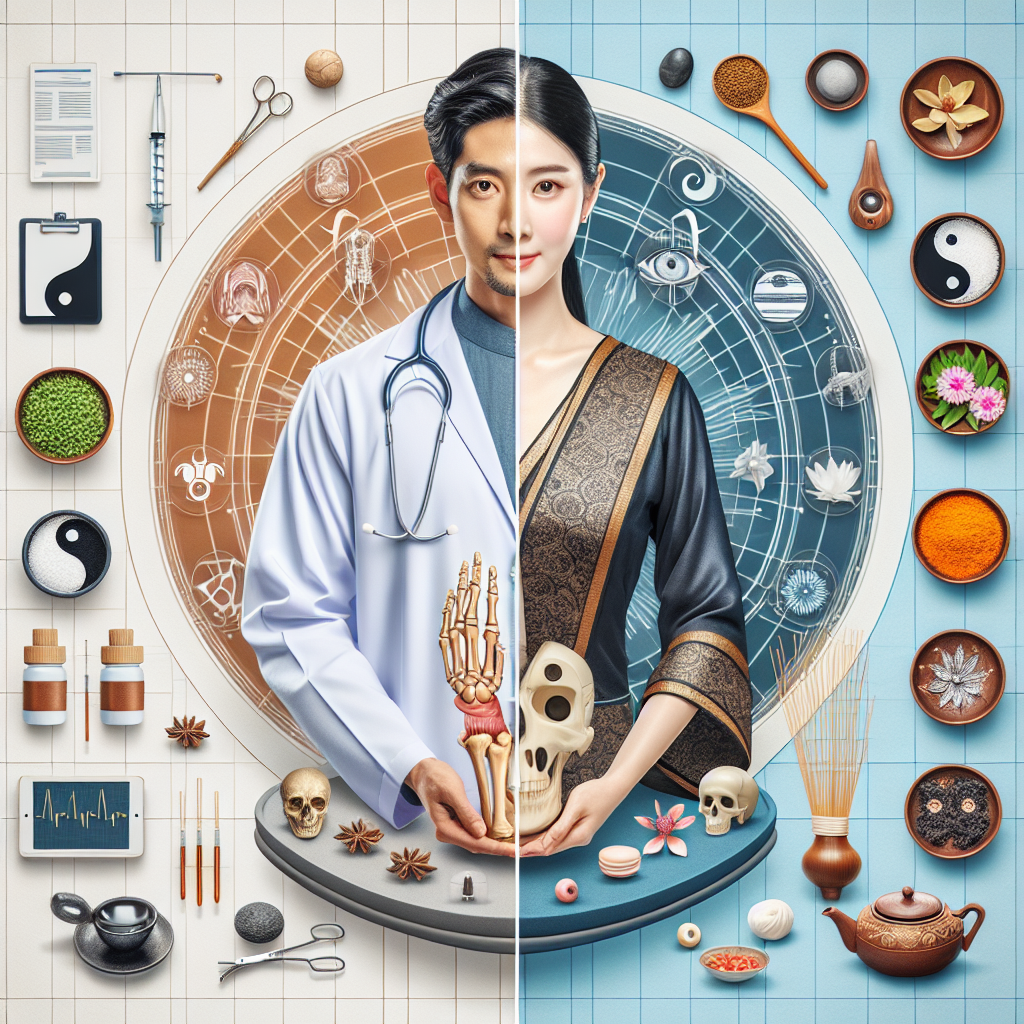Synergy in Healing: How Western and Eastern Medicine Can Collaborate to Effectively Manage Arthritis
Arthritis, a condition characterized by inflammation of the joints, affects millions of people worldwide, causing pain, stiffness, and reduced mobility. The severity and persistence of arthritis symptoms can significantly impact an individual’s quality of life. Despite the prevalence of arthritis, there is no one-size-fits-all cure. However, the integration of Western and Eastern medicinal approaches offers a promising pathway to more effective management of this chronic condition.
Understanding Arthritis
Arthritis is not a single disease but an umbrella term for over 100 different types of joint inflammation disorders. The most common forms are osteoarthritis (OA) and rheumatoid arthritis (RA). OA is primarily a degenerative condition where the cartilage that cushions the ends of the bones wears down over time. RA, on the other hand, is an autoimmune disorder where the body’s immune system attacks the joints, causing painful swelling and potential joint deformity.
Western Medicine Approaches
Western medicine, also known as conventional or allopathic medicine, has made significant strides in understanding and treating arthritis. The primary focus is on symptom management, pain relief, and slowing the progression of the disease.
Pharmacological Treatments
1. Nonsteroidal Anti-Inflammatory Drugs (NSAIDs): These are often the first line of treatment. They help reduce inflammation and relieve pain. Common NSAIDs include ibuprofen and naproxen.
2. Corticosteroids: These are more potent anti-inflammatory medications that can be taken orally or injected directly into the affected joints for quick relief.
3. Disease-Modifying Antirheumatic Drugs (DMARDs): These are primarily used for RA and aim to slow disease progression by modifying the underlying disease processes.
4. Biologics: These are a newer class of DMARDs that target specific components of the immune system to prevent inflammation and joint damage.
Non-Pharmacological Treatments
1. Physical Therapy: Customized exercise programs can help maintain joint function and reduce pain. Strengthening the muscles around the joints provides better support and reduces strain.
2. Surgery: In severe cases of arthritis, especially OA, joint replacement surgery might be considered. This involves replacing the damaged joint with a prosthetic one.
3. Assistive Devices: Canes, walkers, and orthopedic braces can help improve mobility and reduce pain.
Eastern Medicine Approaches
Eastern medicine, particularly Traditional Chinese Medicine (TCM) and Ayurveda from India, offers a holistic approach to arthritis management. These systems focus on balancing the body’s energy (Qi in TCM or Prana in Ayurveda) and often incorporate diet, lifestyle changes, herbal remedies, and various physical therapies.
Traditional Chinese Medicine (TCM)
1. Acupuncture: This ancient practice involves inserting fine needles into specific points on the body to stimulate energy flow and reduce pain. Studies have shown that acupuncture can be effective in reducing arthritis pain and improving joint function.
2. Herbal Medicine: TCM practitioners use a variety of herbs, such as turmeric, ginger, and boswellia, which have anti-inflammatory properties. These herbs are often combined into formulas tailored to the individual’s constitution and symptoms.
3. Tai Chi and Qigong: These gentle martial arts focus on slow, deliberate movements, breathing exercises, and meditation. They have been shown to improve physical function, reduce pain, and enhance mental well-being in arthritis patients.
Ayurveda
1. Dietary Changes: Ayurveda emphasizes the importance of diet in managing arthritis. Anti-inflammatory foods, such as turmeric, ginger, and garlic, are recommended. Processed foods, sugar, and red meat are discouraged.
2. Herbal Remedies: Ayurvedic herbs like ashwagandha, guggul, and boswellia are commonly used to reduce inflammation and pain.
3. Panchakarma: This is a detoxification process aimed at removing toxins from the body. It includes a combination of therapies such as massage, herbal steam baths, and dietary changes.
4. Yoga: Practicing yoga can improve flexibility, strength, and overall well-being. Specific poses are designed to reduce joint pain and improve mobility.
Synergy in Healing: Integrative Approaches
The integration of Western and Eastern medicinal approaches offers a more comprehensive strategy for managing arthritis. By combining the strengths of both systems, patients can benefit from a holistic approach that addresses both symptoms and underlying causes, providing more effective and sustainable relief.
Complementary Strategies
1. Personalized Treatment Plans: Integrative medicine emphasizes individualized care. By considering a patient’s unique symptoms, lifestyle, and preferences, a combination of treatments from both Western and Eastern medicine can be tailored to provide optimal results.
2. Mind-Body Connection: Techniques such as mindfulness, meditation, and stress management are integral to Eastern medicine and can be powerful adjuncts to Western treatments. Reducing stress can help lower inflammation and improve overall well-being.
3. Nutrition and Lifestyle: A combined approach that incorporates dietary recommendations from Ayurveda or TCM, alongside Western nutritional guidelines, can provide a balanced diet that supports joint health and reduces inflammation.
4. Physical Activity: Integrating physical therapy from Western medicine with practices like yoga, Tai Chi, or Qigong from Eastern medicine can enhance mobility, strength, and pain management.
5. Herbal and Pharmaceutical Synergies: Some herbal remedies from TCM and Ayurveda can complement Western medications, potentially reducing the need for higher doses of pharmaceuticals and minimizing side effects. However, it is crucial to consult healthcare providers to avoid interactions and ensure safety.
Conclusion
Arthritis is a complex and multifaceted condition that requires a comprehensive approach for effective management. The strengths of Western medicine in providing quick symptom relief and slowing disease progression can be complemented by the holistic, personalized care offered by Eastern medicine. By integrating these diverse approaches, healthcare providers can offer patients a more effective, sustainable, and balanced pathway to managing arthritis. This synergy in healing not only addresses the physical aspects of the disease but also nurtures mental and emotional well-being, paving the way for a better quality of life for arthritis sufferers.

